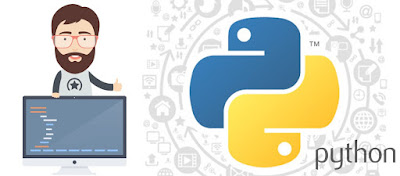What Skills Are Taught In Advanced Analytics?
Traditional data analysis is big data and cannot handle the emergence of big structured and unorganized data. Relational database management systems need to improve mobility and use statistical algorithms to gain insight.
The good news is that even if you work with small, large or unstructured datasets, the part of the analysis is the same. What is most needed for big data, is the ability to extract relevant information from a huge amount of data that works every minute. It requires technology to work with traditional surgery.
Let us look at some of the basic skills you need to be a good data analyst.
1) Programming
Traditional data analyzers can get away without being fully programmed, but big data analyzers need to be very comfortable in coding. One of the main reasons for this situation is that big data is still under development. Many regular operations are not configured for large, complex datasets that analysts have to deal with. Many tasks are required daily to process unstructured data.
Required Languages - R, Java, Python, Ruby, C ++, Hive, SQL, MATLAB, SAS, Julia, Weka, SPSS, and Scala. You also cannot learn a language that does not become a barrier to the Big Data world. At least, you should know Python, R, and Java. While working, you will have to use different tools. The programming language is just a tool to learn advanced analytics.
2) Data storage
Experience in non-relational and relational database systems. Examples of relational databases include MySQL, Oracle, and DB2. Examples of the relational database include -NoSQL: Couch DB, MongoDB, HBase, Cassandra, HDFS, Teradata, etc.
3) Computer frame
Understanding and good knowledge of frameworks such as Apache Storm, Apache Spark, Apache Plink, MapReduce, Apache Samza, Classic Khadwaf. These technologies are useful in order to learn analytics and artificial intelligence and in processing large amounts of data that can be streamed in bulk.
4) Quantitative Fitness and Statistics
Big data processing requires widespread use of technology, but data analysis requires knowledge of statistics and linear algebra. Statistics is a basic component of data science, and if you are a data scientist, it is important to understand basic concepts like summary statistics, probability distributions, random variables, and hypothesis test frameworks.
5) Business knowledge
In order to focus on verifying and analyzing, sorting, evaluating, and linking data, the most important skill in the Big Data world is sufficient knowledge in the field in which the person works. In fact, the reason behind the great demand for data analysts is that it is very rare to find technical aspects, statistics, and resources that understand the business well. There are good business and statistics analysts, but not programming. There are specialized programmers who do not know how to deploy programs in the context of business goals.
In order to focus on analyzing and verifying, sorting, linking, and evaluating data, the most important skill in the Big Data world is sufficient knowledge in the field in which the person works. In fact, data analysts are so popular because it is very rare to find resources that have a comprehensive understanding of technical aspects, statistics, and business.
Finally, attachments for learning machine learning are very helpful because they help manage complex data structures and learning styles that are difficult to process using traditional data analytics.




Do this hack to drop 2 lbs of fat in 8 hours
ReplyDeleteOver 160000 women and men are using a easy and secret "water hack" to lose 1-2 lbs every night while they sleep.
It is easy and it works every time.
Here are the easy steps for this hack:
1) Grab a glass and fill it up half glass
2) And now follow this proven hack
so you'll be 1-2 lbs lighter when you wake up!
Your article provides a great overview of the essential skills covered in advanced data analyticstraining. The emphasis on statistical modeling, machine learning, and big data technologies is highly valuable for professionals looking to enhance their expertise. I appreciate the clarity in explaining how these skills apply to real-world problem-solving. This is a must-read for anyone aiming to advance their career in data analytics. Well done on providing such insightful and practical information!
ReplyDelete